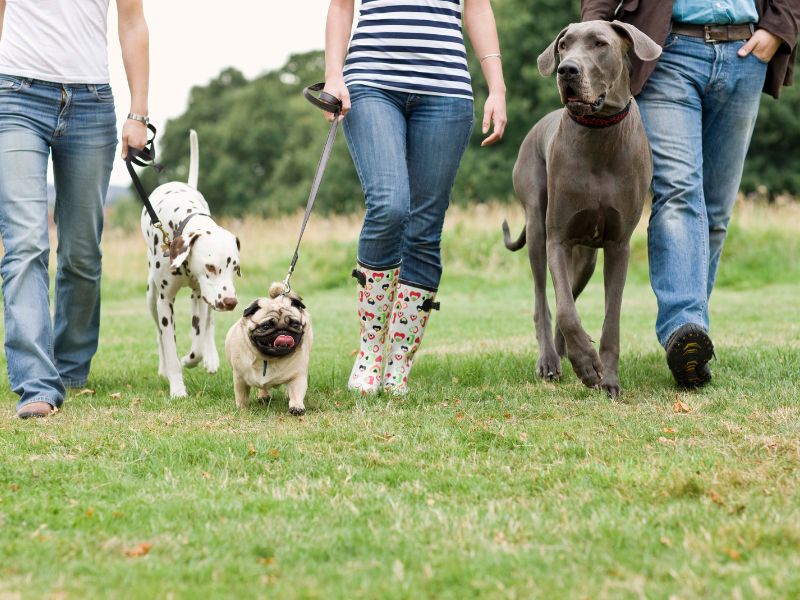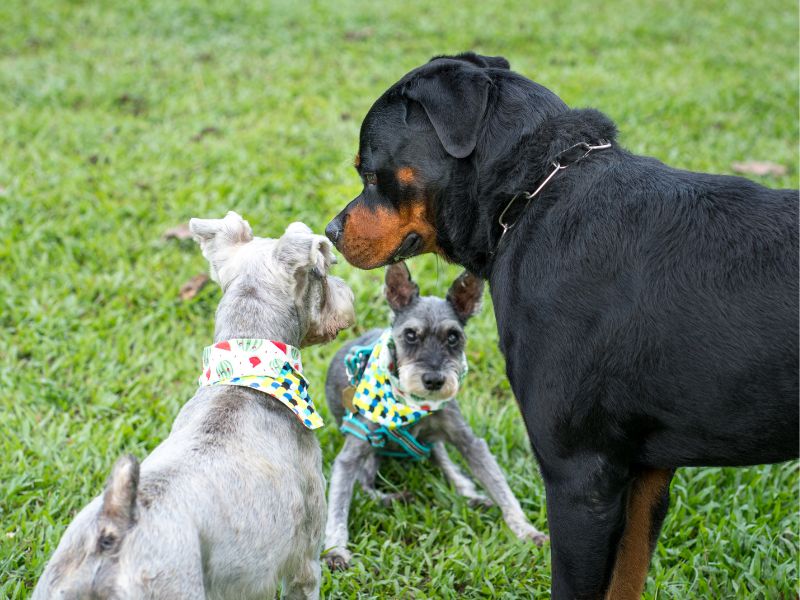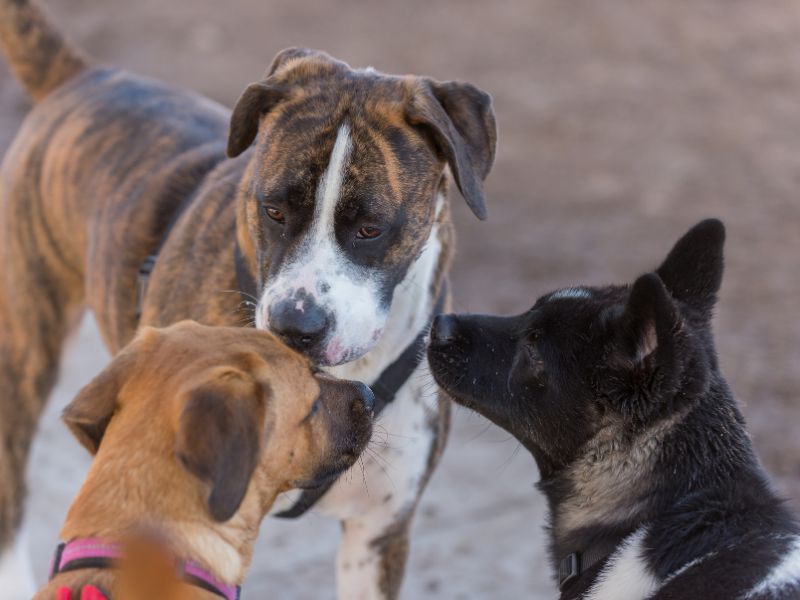As a responsible dog owner, you want your furry companion to be happy, healthy, and well-behaved. One crucial aspect of achieving this is by socializing your dog. Socialization involves exposing your dog to different people, animals, and environments to help them build confidence and develop positive behaviors. While socializing your dog may seem like a simple task, it requires effort and consistency to get it right. It’s essential to start socializing your dog at a young age to prevent them from developing fear or aggression towards strangers or other dogs. The benefits of socializing your dog are numerous, including improved obedience, reduced anxiety, and increased physical and mental stimulation. Join me as we explore the importance of socializing your dog and learn some tips on how to do it effectively.
What Is Socialization for Dogs?
Socialization is the process of introducing your dog to various situations, people, and animals, with the aim of helping them become more comfortable and confident in different environments. When you socialize your dog correctly, you can help them develop positive behaviors, reduce anxiety and fear, and improve their overall well-being. Socializing your dog involves exposing them to different sights, sounds, smells, and textures so that they can learn to adapt to new situations.
Benefits Of Socializing Your Dog
Socializing your dog has numerous benefits, including improved obedience, reduced anxiety, and increased physical and mental stimulation. When you socialize your dog, you help them build confidence, learn new skills, and develop positive behaviors. Dogs that are well-socialized are more likely to be well-behaved, happy, and healthy. They are less likely to develop behavior problems such as aggression, fear, and separation anxiety. Additionally, socialization can help your dog become more adaptable and better equipped to handle new situations and environments.
When To Socialize Your Dog
The best time to socialize your dog is when they are young, ideally between the ages of 3 and 14 weeks. During this time, your dog is more open to new experiences and less likely to develop fear or aggression towards strangers or other dogs. However, it’s never too late to start socializing your dog, and even adult dogs can benefit from socialization. The key is to be patient, consistent, and positive in your approach.

How To Socialize Your Dog
Socializing your dog involves exposing them to different people, animals, and environments, in a controlled and positive way. The goal is to help your dog build confidence and develop positive behaviors. Some tips on how to socialize your dog include:
- Start slow: Begin by introducing your dog to new environments and people gradually. Start with quiet, low-stress environments and gradually increase the level of exposure.
- Use positive reinforcement: Reward your dog with treats, praise, and playtime for good behavior. This positive reinforcement helps your dog associate new experiences with positive outcomes.
- Be patient: Socializing your dog takes time and patience. Don’t rush the process or force your dog into situations they are not comfortable with.
- Be consistent: Socialization requires consistency and regular exposure to new experiences. Make socialization a part of your dog’s daily routine.
Socialization Techniques and Exercises for Your Dog
There are several socialization techniques and exercises you can use to help your dog become more comfortable and confident in different situations. Some of these techniques include:
- Desensitization: Gradually exposing your dog to unfamiliar sights, sounds, and smells, such as car rides, bicycles, and vacuum cleaners.
- Counterconditioning: Teaching your dog to associate positive experiences with previously negative situations, such as thunderstorms or car rides.
- Puppy playdates: Allowing your puppy to interact with other puppies of similar age and size can help them learn social skills and develop positive behaviors.
- Obedience training: Teaching your dog basic obedience commands such as “sit,” “stay,” and “come” can help them feel more confident and in control in new situations.
Common Mistakes to Avoid When Socializing Your Dog
When socializing your dog, there are some common mistakes you should avoid, including:
- Overwhelming your dog: Exposing your dog to too many new experiences at once can be overwhelming and cause fear or anxiety.
- Using punishment: Punishing your dog for negative behavior can increase fear and anxiety and hinder the socialization process.
- Allowing negative interactions: Allowing your dog to interact with aggressive or fearful dogs can cause negative associations and hinder socialization efforts.
- Ignoring signs of fear: Ignoring signs of fear or anxiety in your dog can make the problem worse and hinder the socialization process.
Socializing Your Dog with Other Pets
Socializing your dog with other pets can be challenging, but it’s an essential part of the socialization process. When introducing your dog to other pets, it’s essential to do so slowly and carefully. Some tips for socializing your dog with other pets include:
- Supervision: Always supervise your dog when introducing them to other pets.
- Positive reinforcement: Reward your dog for good behavior around other pets.
- Separate spaces: Provide separate spaces for your dog and other pets to retreat to if they feel uncomfortable.
- Calm energy: Remain calm and relaxed during introductions to help your dog feel more at ease.
Socializing Your Dog with People
Socializing your dog with people is crucial for their overall well-being and safety. When introducing your dog to new people, it’s essential to do so slowly and in a controlled environment. Some tips for socializing your dog with people include:
- Positive reinforcement: Reward your dog for good behavior around new people.
- Controlled environment: Introduce your dog to new people in a controlled environment, such as your home or a quiet park.
- Slow introductions: Introduce your dog to new people slowly and gradually.
- Avoid overwhelming your dog: Don’t overwhelm your dog with too many new people at once.

See Also: Triggers of Destructive Behavior in Dogs
And: How to Deal with Separation Anxiety in Dogs
Socializing Your Dog with Children
Socializing your dog with children is particularly important, as children can be unpredictable and may unintentionally provoke a negative reaction from your dog. When introducing your dog to children, it’s essential to do so slowly and carefully. Some tips for socializing your dog with children include:
- Supervision: Always supervise your dog when around children.
- Positive reinforcement: Reward your dog for good behavior around children.
- Controlled environment: Introduce your dog to children in a controlled environment, such as your home or a quiet park.
- Teach children to interact with your dog: Teach children how to interact with your dog safely and respectfully.
The Role of Obedience Training in Socialization
Obedience training plays a crucial role in socializing your dog. When your dog knows basic obedience commands, such as “sit,” “stay,” and “come,” they are more likely to feel confident and in control in new situations. Obedience training also helps your dog understand what is expected of them and can prevent negative behaviors, such as jumping or barking. When your dog is well-trained, they are more likely to be well-socialized.
Conclusion And the Importance of Ongoing Socialization
Socializing your dog is one of the most important things you can do for their overall well-being and safety. By exposing your dog to new experiences, people, and animals, you can help them build confidence, develop positive behaviors, and reduce anxiety and fear. It’s essential to start socializing your dog at a young age and to be patient, consistent, and positive in your approach. The benefits of socializing your dog are numerous, including improved obedience, reduced anxiety, and increased physical and mental stimulation. Remember, socialization is an ongoing process, and it’s important to continue exposing your dog to new experiences throughout their life to help them remain happy, healthy, and well-behaved.

